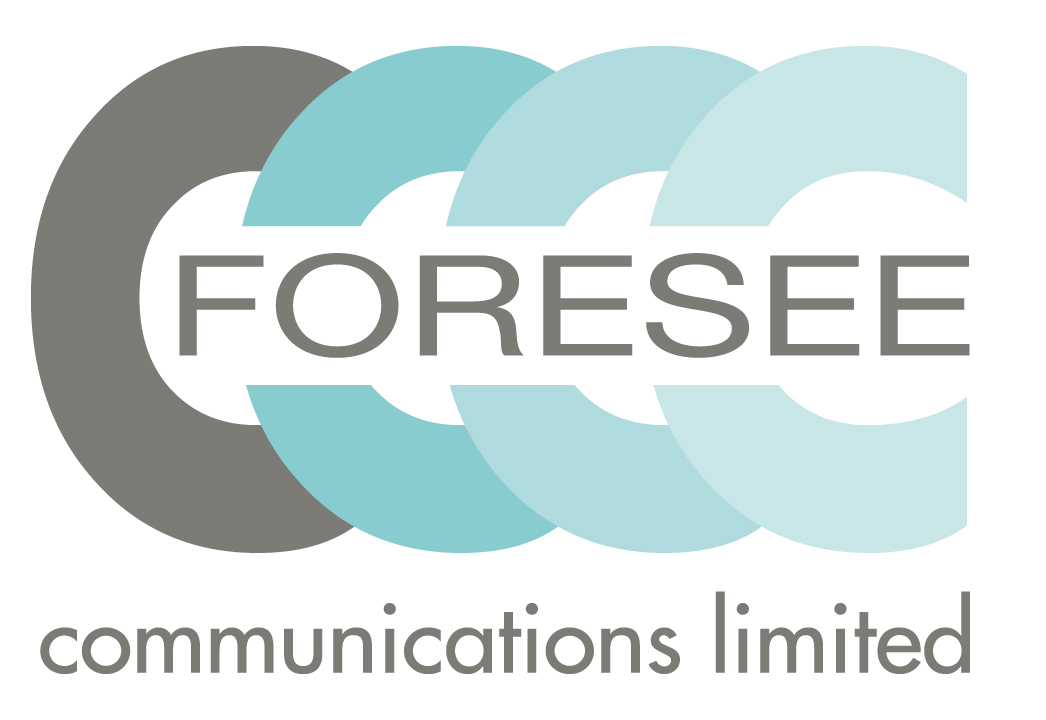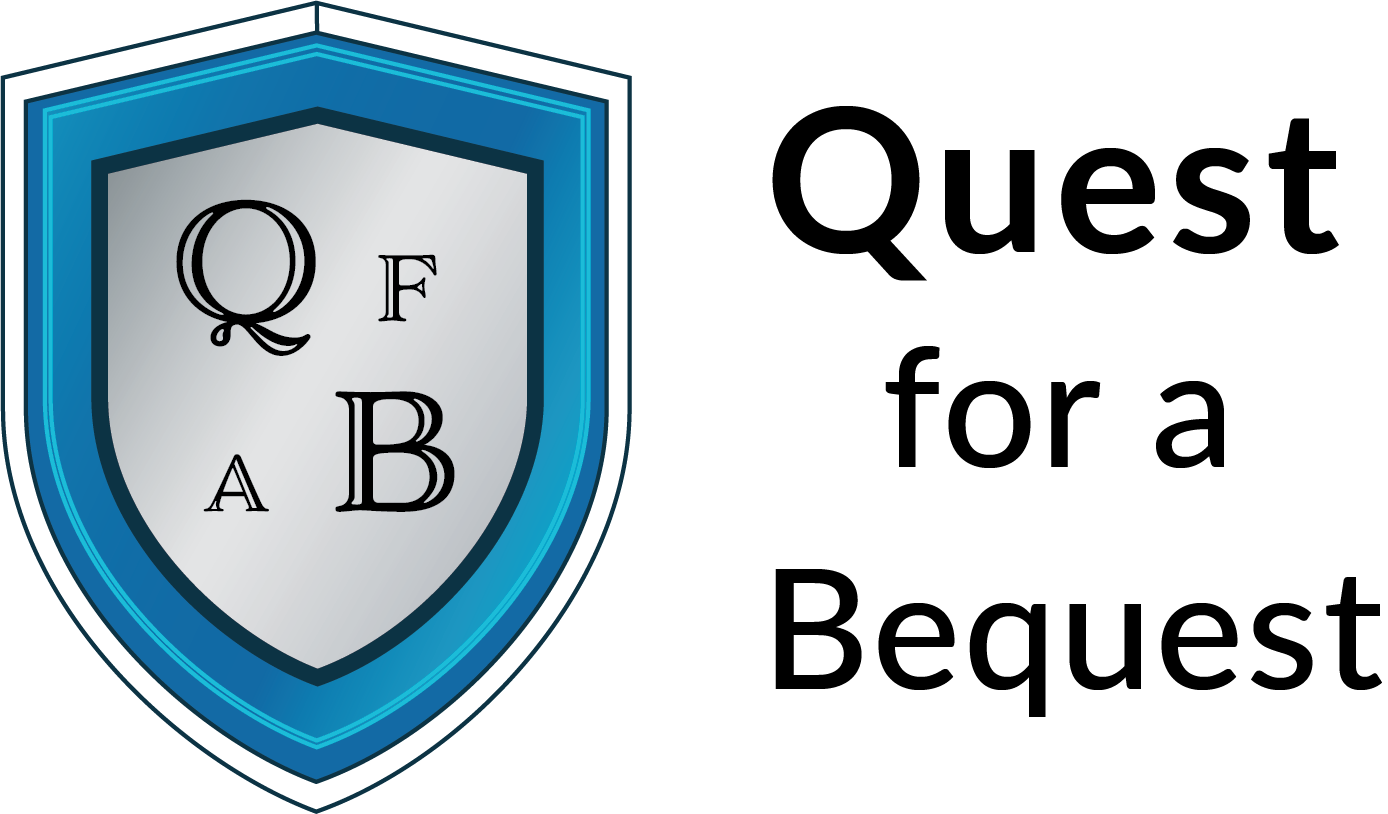Champions of change in the charity and non profit sector
was held at Te Papa, 13 March 2019.
Look out for information about Champions of Change, round 2, 25 September 2019 when we invite Shamal back for another insightful symposium.
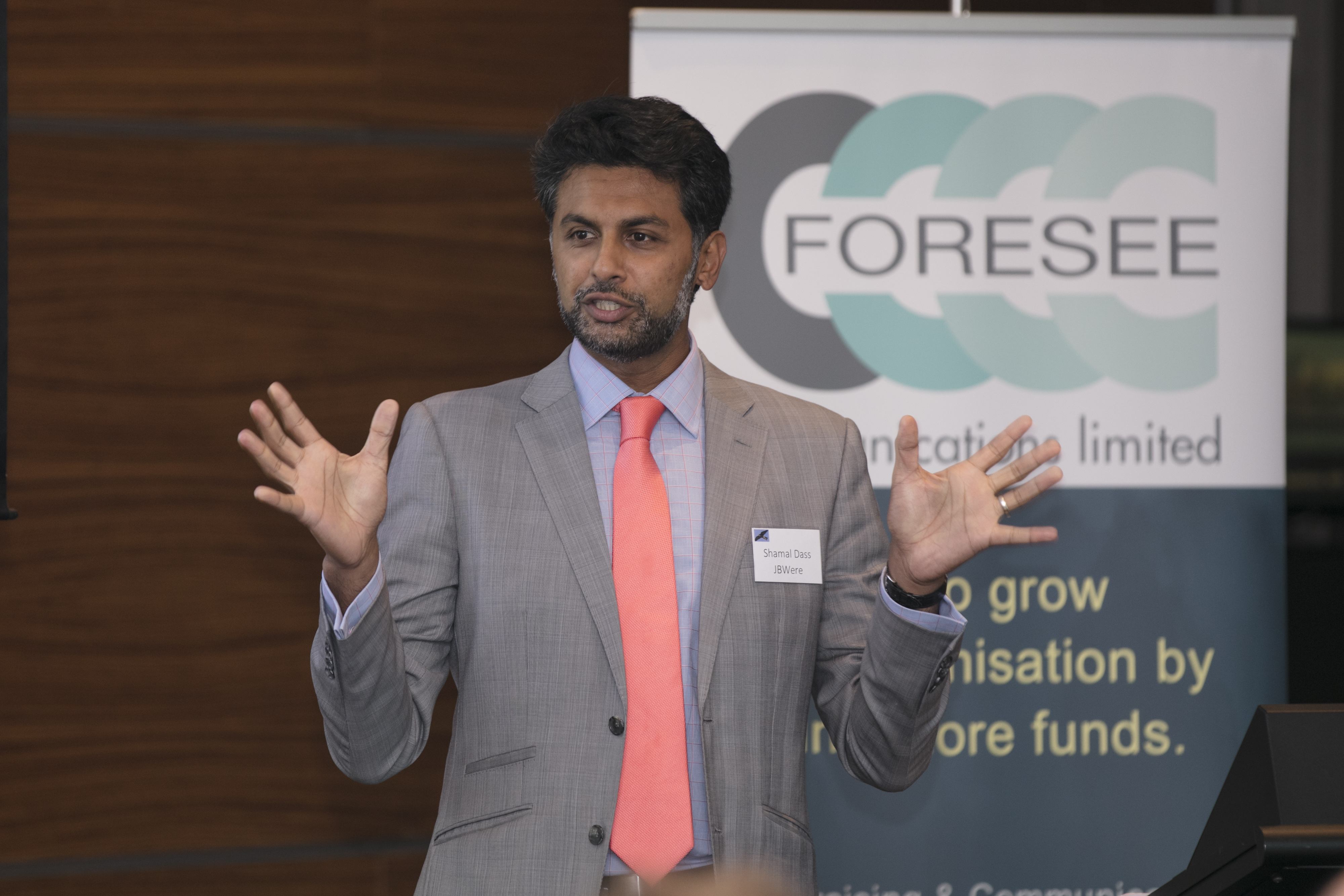
Reflecting on the key issues/challenges laid out at the inaugural Champions of Change, charity leadership symposium yesterday, I realised that although there were many issues identified, there were also solutions.
Amongst other key points, Shamal Dass , Philanthropy Services Manager from JBWere, was the first to bring it home that too many of us cannot reach the impact we are hoping for without collaboration. A simple example is the group which provide a workshop for women in need. The workshop may have fantastic content but if the target group cannot find transport or child care it may fail. An out of the box solution is that the group provides its training workshops (its IP) to others who already have the target market sitting in front of them.
The issue of governance, expertise, roles and responsibilities and accountabilities were addressed by Shamal and then further canvassed by the panel of Graeme Nahkies, John Page and Helen Down. Although most of us realise that finding appropriate expertise at the governance level is going to be much harder in future, Helen Down provided a possible solution in the form of advisory boards. Helen founded the organisation, Advisory Boards of New Zealand and she addressed the possibilities of crossing this commercial service over into the charitable sector.
Bill Day provided the ultimate representation of the charitable culture by talking about the successes of Wellington Children’s Hospital. He demonstrated by his enthusiasm, the true role of a charity leader.
Dalton Kelly, in his hard-nosed, upfront manner, highlighted many issues that need to be fixed and addressed by our sector. In particular Dalton expressed his concern for the inefficiency of too many charities doing their own thing when collaborations and co-opetition with others could lead to great outcomes for our causes. Co-opetition in Dalton’s definition is when charities put aside branding in favour of achieving outcomes for the overall cause. Have a look at the number of charities listed that do something similar to you, and ask yourself whether you could share something or even give up something for the benefit of. What is your real area of expertise, your IP? Could you be a supplier to the charitable sector rather than delivering a service?
Steve Glassey has a long history of charity leadership and provided useful leadership tips, especially for those tackling a period of change.
Sue McCabe, the incoming CE of Philanthropy New Zealand, reassured us of the support, development and direction of many of New Zealand’s major and minor funders and philanthropists. New research and collaborative reports/studies are in the offing.
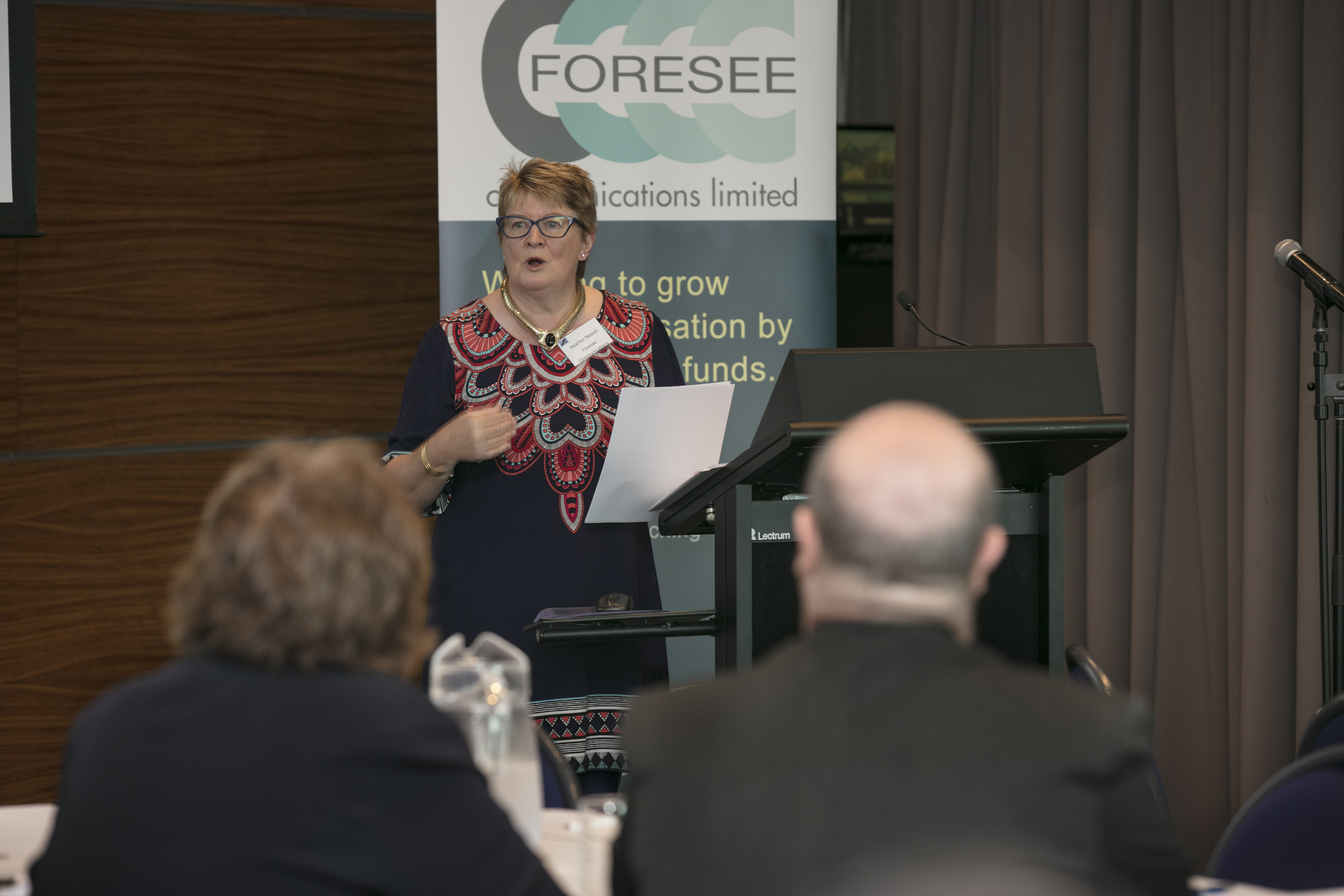 As I had the privilege of summing up – I themed my presentation around creative disruption by posing some hard-nosed questions that would help a board of trustees really focus on the “why”. My first suggestion is “set a date for closure.” Think about why you exist, how you propose to save the world, and ask whether someone else could do it better. What would the world look like when you have completed your mission? If your mission is never going to be completed, then perhaps you need to review your mission.
As I had the privilege of summing up – I themed my presentation around creative disruption by posing some hard-nosed questions that would help a board of trustees really focus on the “why”. My first suggestion is “set a date for closure.” Think about why you exist, how you propose to save the world, and ask whether someone else could do it better. What would the world look like when you have completed your mission? If your mission is never going to be completed, then perhaps you need to review your mission.
Thanks to our supporters for helping put this together. Execucare, Research Services, Blue Star group and Kea Consulting.
Will you be attending round two, next year?
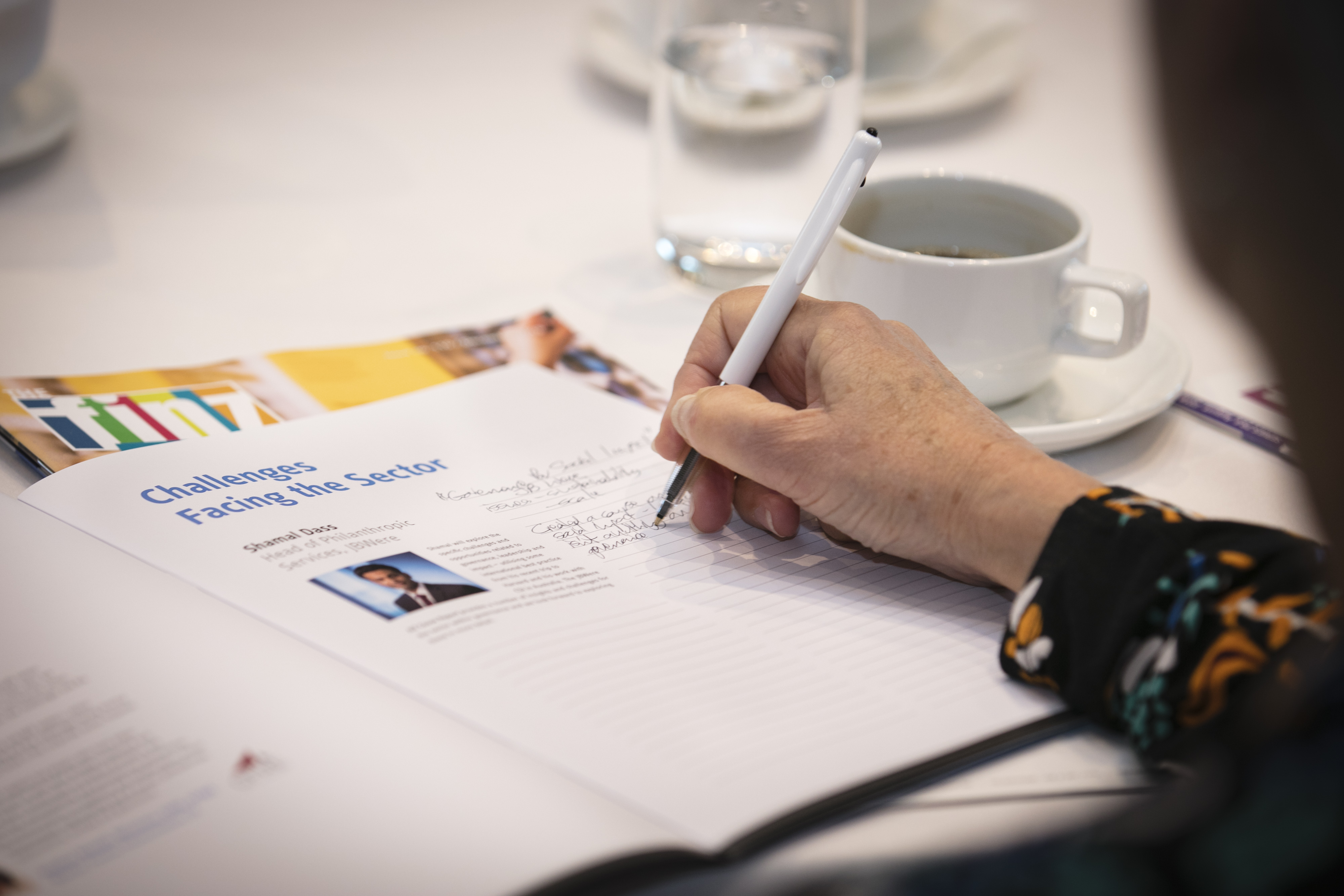 Thank you to our Symposium Sponsors - Printlink, Execucare NZ, Research Services, Foresee Communications Ltd, Quest For A Bequest Ltd.
Thank you to our Symposium Sponsors - Printlink, Execucare NZ, Research Services, Foresee Communications Ltd, Quest For A Bequest Ltd.
For a copy of the Cause Report visit JBWere - https://www.jbwere.co.nz/assets/Uploads/The-JBWere-NZ-Cause-Report.pdf

 Thank you to our Symposium Sponsors - Printlink, Execucare NZ, Research Services, Foresee Communications Ltd, Quest For A Bequest Ltd.
Thank you to our Symposium Sponsors - Printlink, Execucare NZ, Research Services, Foresee Communications Ltd, Quest For A Bequest Ltd.
